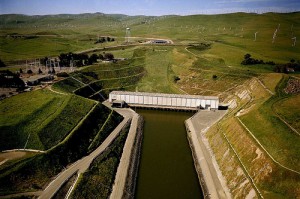 Negotiations grind on between the Department of Water Resources and the water suppliers who contract for water from the State Water Project, with payment for recreation and other non-water costs being one of the main sticking points in the ongoing discussions.
Negotiations grind on between the Department of Water Resources and the water suppliers who contract for water from the State Water Project, with payment for recreation and other non-water costs being one of the main sticking points in the ongoing discussions.
“The negotiations have been relatively slow and difficult in the last month, and I would also forecast that it’s going to continue to be that way through January, given the holidays,” Devan Upadhyay told the Metropolitan Water District’s Water Planning and Stewardship Committee at the November meeting.
The State of California and the Department of Water Resources own and operate the State Water Project facilities. The contractors who purchase water from the State Water Project pay for the costs of the project under the terms of contracts that were signed in the 1960s. Most of these contracts are set to terminate in 2035, although a few do extend to 2042.
The contractors are looking for an extension of the contract term to prevent increases in capital cost payments due to the shorter term length, a billing process that is more clear and understandable, and increased input in DWR’s financial management decisions. The Department of Water Resources is looking for increased financial flexibility, an increase in their operating reserves, and the ability to issue revised bills.
The main issue appears to be that DWR is looking for a revenue source for non-water related items, such as recreation and fish and wildlife enhancement costs. However, the 1961 Davis-Dolwig Act states that the state is not to include costs of recreation and fish and wildlife enhancements in charges levied on SWP contractors, with the intent of the Legislature being that these costs would be paid for by the General Fund. (LAO Office). The contractors remain adamant that they do not want to pay these costs.
The DWR is now looking for the contractors to agree on the share of recreation costs that would be paid by the state, reports Mr. Upadhyay, and they have brought up the notion that the contractors would forego protests related to the state not paying the full recreation costs. “There are some key items on DWR’s side that, as you can see from a negotiating perspective, are positions that would be very difficult to simply say yes to,” said Mr. Upadhyay.
DWR is looking to have the ability to issue revised bills as one way to increase their financial flexibility, but this does pose a problem for the contractors. “What that means is that if we go and set our rates based on a projected statement of charges that we will have to pay to DWR, DWR after we have already set our rates, could issue a new revised bill of a higher amount that would put us potentially at risk, so we have some challenges with that,” he said, “but we’re trying to discuss how can we deal with this going forward in a way that doesn’t put pressure on the contractors.”
The outcome once negotiations are complete will be “Agreements in Principle” which attorneys will use to draft the contract amendments. DWR will then prepare environmental documents under CEQA and receive public comment. A legislative hearing is required, as well as final approval by the contractors.
Negotiation sessions have been scheduled through January, and are expected to go slowly, in part, due to the holiday season. The process is targeted for completion by the end of 2014.
You must be logged in to post a comment.